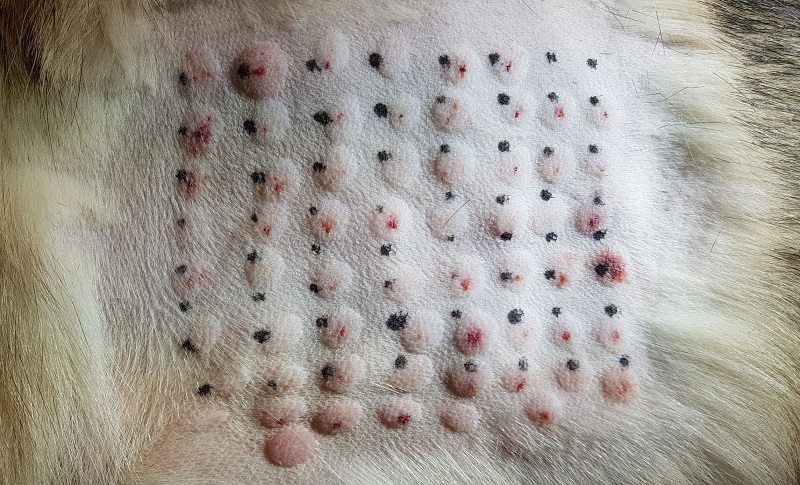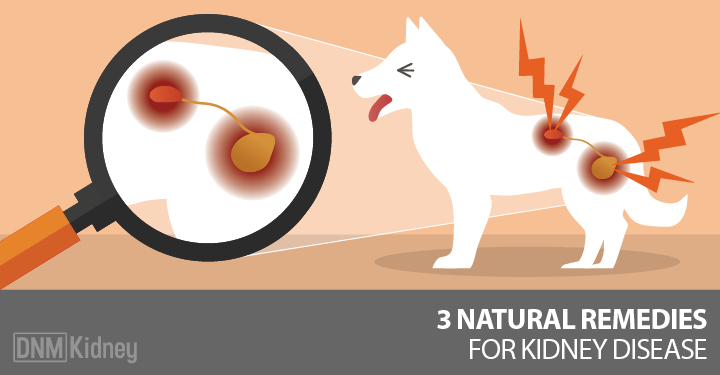Great Reasons For Deciding On Herbs Good For Dogs
Great Reasons For Deciding On Herbs Good For Dogs
Blog Article
What Are The Ways That Cat And Dog Skin Allergies Alleviated By Probiotics?
Probiotics could play a crucial part in managing and alleviating allergies of the skin in dogs and cat. Probiotics are beneficial for maintaining the gut microbiome, which consequently, aids in the immune system as well as the skin. Let's take a look at the ways that probiotics can help reduce allergies in pets.
Immune System Regulation
Immune Balance:
Function: They help regulate your immune system by increasing the number of good bacteria while inhibiting the negative ones.
Benefits: A healthy immune system can help reduce hypersensitivity reactions that contribute to skin allergies. This can reduce the intensity, and frequency of allergic reactions.
Inflammation Reduction
Anti-inflammatory Effects:
Function: Certain strains of probiotics can create anti-inflammatory compounds and alter the body's response to inflammation.
Benefits: Through reducing systemic inflammation, probiotics can help reduce itching and inflammation that is often associated with skin allergies leading to healthier skin.
Gut-Skin Axis
Improvement in Gut Health:
Function: The gut and skin axis forms the connection between gut health, skin health, and overall health. Probiotics have been proven to boost digestive health and gut barrier function.
Benefits A healthy gut helps stop the release of allergens and toxins in the bloodstream which could cause skin reactions. This may reduce the severity of allergic skin symptoms.
Strengthening Skin Barrier
Improve Skin Barrier Function
Function: They can influence the production of other liquids, such as ceramides that are vital to maintain a healthy epidermis barrier.
Benefits A thicker skin barrier can help to protect against allergens from the environment. This reduces skin infections and allergic reactions.
Allergy Symptom Management
Treatment of Symptoms:
Function: Probiotics can be used to alleviate symptoms by modulating release of histamines, as well as other chemicals that are involved in allergic reactions.
Benefits of this product It reduces itching and discomfort in pets with allergies.
Enhanced Microbial Diversity
A broader range of microbial species is increased:
Function: Boosts diversity of microbiome of the gut.
Benefits In preventing an overgrowth of harmful bacteria, which may create allergies, a diverse microbiome can help your overall well-being.
Specific Probiotic Strains
Lactobacillus or Bifidobacterium are two common probiotic strains that have proven to be effective in treating skin allergies in animals.
Lactobacillus Rhanosus GG is well known for improving gut health and for reducing symptoms of allergies.
Bifidobacterium Animalis: Reduces inflammation and improves the immune system.
Usage Aspects
Dosage and Administration: The proper dosage of probiotics will be based on the pet's size, weight and health requirements. The product label should be followed, or the suggestions of your veterinarian.
Formulations Probiotics for pets can be found in many forms, including powders, capsules, and chews. To ensure safety and efficacy, it's essential to select the best quality, pet-specific product.
Monitoring and side effects. Probiotics can be suitable for dogs, however you must monitor them carefully to see if they have any adverse reactions. To minimize side negative effects, start with the lowest dosage, and then gradually increase the dosage.
Conclusion
Probiotics have been proven to be effective for treating skin allergies, especially in dogs and cats. They do this by regulating their immune system, reducing inflammation, strengthening the skin barrier and improving the overall health of the gut. Regular use can result in the reduction of symptoms associated with allergies. They also help to promote better skin health for pets and an increase in the satisfaction with their lives. Take a look at the best pet wellbeing for website recommendations including pet digestive supplements, pet circle, pet wellbeing australia, pet supplements for pets with kidney disease, pet devil's claw supplements, pet supplements for pets with fear of vet visits, pet supplements for pets with brittle nails, pet calming supplements and more.
Coconut Oil Helps With Allergies For Cats And Dogs.
Coconut oil is a safe cure that can help manage skin allergies in dogs as well as cats because of its moisture-soothing, anti-inflammatory, antimicrobial and healing qualities. Coconut oil has many benefits for pets who suffer from skin allergies.
Moisturizing Properties
Skin Hydration
Function: Coconut oil is an excellent moisturizer that can penetrate the skin quickly.
Benefits: Helps moisturize dry skin that is flaky, itchy and dry. It reduces itching while promoting the health of the skin barrier. This is particularly beneficial for pets suffering from allergic dermatitis that often results in dry and itchy patches on the skin.
Anti-inflammatory Action
Reduce Inflammation
Coconut oil has anti-inflammatory properties because of lauric acids.
Applying coconut oil to the affected skin can help reduce the redness, swelling and irritation. This can provide an important relief for pets who suffer from allergic reactions.
Antimicrobial Activity
Combating Infections
Function: Lauric acid and caprylic acid in coconut oil are antimicrobial properties that help fight bacteria, viruses and fungi.
Benefits: Coconut oil can prevent or treat skin infections secondary to those that are usually caused by scratching or irritation caused by allergies. It can aid in maintaining the health of your skin and also prevent future complications.
Relaxation and healing
Promoting Healing
Coconut oil is a natural remedy for the skin.
Benefits : It's an all-natural remedy that can help repair minor cuts and abrasions. This aids in speeding up the healing process for skin damaged due to allergies.
Barrier Protection
Enhancing Skin Barrier:
Coconut oil strengthens the natural barrier to the skin.
Benefits: A thicker skin barrier protects against allergens and environmental irritants and reduces the chance of skin infections.
Dietary Supplements
Internal Benefits
Use: Coconut oil can also be consumed orally as a nutritional supplement.
Consumed, it improves overall good skin health. The anti-inflammatory and antimicrobial qualities can help reduce systemic inflammation and enhance the immune system of pets and reduce the risk of skin allergies.
Usage and Considerations
Topical application Use a tiny amount of coconut oils directly onto the skin. It is crucial to massage gently to allow it to be absorption. This can be repeated once or twice daily based on the severity.
Coconut oil is a good oral supplement. It can be included to the diet of your pet. The recommended dosage for pets is typically 1 teaspoon coconut oil for every 10 pounds.
Coconut Oil Quality: Choose organic, virgin coconut oil free of preservatives, additives and other ingredients.
Check for reactions - Although coconut oil generally is safe, you should keep watch over your pet to determine if they experience any adverse reactions. This could include diarrhea, vomiting, or skin irritation if it has been applied to the skin.
If you want to know more about this topic, please click here.
Coconut oil is a natural solution that is used to treat allergies on the skin of cats as well as dogs. Its moisturizing anti-inflammatory antimicrobial healing properties help soothe and protect your skin. They reduce itching and inflammation. Regularly applying coconut oil, applied topically and as a food supplement, can give significant relief from symptoms of allergy and enhance the quality of life of pets with skin allergies. Have a look at the recommended more help about herbs good for dogs for more info including pet health supplements, pet muscle supplements, pet supplements for pets with fear of aging, pet supplements for pets with ringworm, dog vitamins, pet supplements for pets with nerve damage, pet supplements for pets with fear of injury, pet wellbeing cushings care kit and more.
What Is The Best Way To Use Apple Cider Vinegar? Be Utilized To Treat Yeast Infections In Dogs And Cats?
ACV is used as a treatment for yeast infections in cats and dogs. Although there's evidence and a few studies that suggest the potential benefits of ACV but it's crucial to use ACV cautiously and under medical supervision due to its acidic character and the potential for adverse side effects. ACV is believed to be helpful in treating yeast infections.
Antifungal Properties
Acidic Environment:
ACV's acidity is between 2.5-3.0 pH. The acidic environment may cause an unhospitable environment yeast growth.
Benefits of applying ACV or adding diluted ACV to the bath water of your pet may reduce the yeast overgrowth in the ear and skin.
Skin pH Regulated
Balancing Skin pH:
ACV may help balance your skin's pH levels. This will help to maintain the health of your skin barrier and stop the growth of yeast.
Benefits: Keeping a healthy pH levels in the skin can aid in preventing yeast infections, as well as enhance overall health of the skin.
Anti-inflammatory Effects
Reduce Inflammation
ACV contains mild anti-inflammatory effects.
The benefits of lessening inflammation: This can reduce symptoms that are associated with yeast infection such as itching, redness and discomfort.
Support for Digestive Health
Internal Use
ACV can improve digestion and aid in the balance of the gut bacteria after ingesting.
Benefits: A healthy gut environment supports overall immune functions and imbalances in microbial activity which can reduce yeast growth.
Use and Considerations
Topical Application - Dilute ACV (typically 1 part of ACV for every 2 parts water) using water. Use as a spray, rinse or ointment to the affected areas. Avoid applying it to open wounds and sensitive skin.
Internal Use: If considering using it internally, consult with a veterinarian first. ACV should be highly diluted (e.g. 1 teaspoon to 1 tablespoon for every cup of water) and given in small quantities to prevent potential gastrointestinal upset or irritation.
When using ACV topically make sure to look out for indications of irritation and allergic reactions. If you have any negative reactions, discontinue using ACV.
Consultation with a Veterinarian Prior to applying ACV as a treatment for yeast infections, consult with your vet. They can provide guidance regarding proper dilution as well as application methods and possible risks depending on your pet's particular health needs.
You can also read our conclusion.
Apple cider can be beneficial in treating yeast infections among dogs and cats, it must be handled with care under veterinary supervision. ACV may provide mild anti-inflammatory as well as antifungal effects because of its acidic nature. Proper dilution, and careful application is necessary to prevent the risk of irritation or adverse reactions. Veterinarian guidance assures that ACV can be used safely and efficiently as a part of a holistic treatment program to treat yeast-related infections in pets. Check out the best the original source on kidney failure in dogs for website info including yeast infections in dogs, cat supplements, herbal supplements for cats, pet eleuthero supplements, pet astragalus supplements, pet goldenseal supplements, cushings disease alternative treatment, pet supplements for pets with allergies and more.